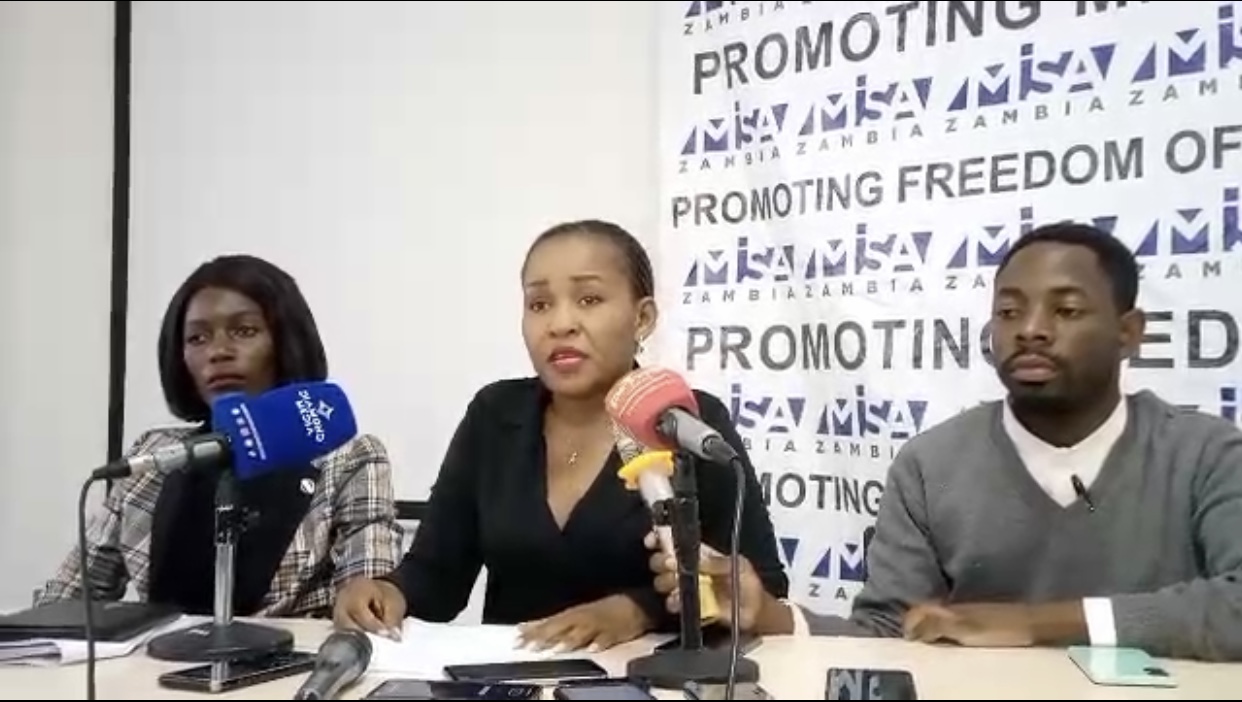Media Council Opposes Move Towards Statutory Media Regulation In Zambia

The Media Self-Regulation Council of Zambia (MCSRZ) has expressed strong reservations about a proposed bill that would introduce statutory oversight of the media sector, sparking widespread discussions about the future of press freedom in the country.
Media Institute of Southern Africa, Chairperson Lauren Mwanza Chisanga, highlighted the importance of preserving media independence, journalistic accountability, and freedom of expression.
Mrs. Chisanga notes that the proposed legislation raises serious concerns about potential government overreach into media operations.
She reiterates that MCSRZ has consistently supported a model of voluntary self-regulation, which upholds journalistic ethics while safeguarding media autonomy.
Speaking during a joint press briefing, Mrs. Chisanga emphasized that the event was organized to provide clarity on the bill’s implications and to reaffirm the Council’s commitment to maintaining a self-regulatory framework as essential to upholding media standards and freedom in Zambia.
Also speaking at the briefing, journalist representative Charity Mtonga firmly rejected the Zambia Institute of Journalism Bill, which aims to implement statutory regulation of the media.
Ms. Mtonga stresses that the journalism community remains committed to the current voluntary self-regulation system and opposes any legislative attempts to enforce mandatory registration, arguing that such measures would erode press freedom and curtail freedom of expression.
She further asserts that Zambia already has sufficient legal tools to address digital misinformation and hold unqualified individuals impersonating journalists accountable.
Ms. Mtonga also revealed ongoing efforts to engage with the Media Owners Association of Zambia to explore key industry issues, including the establishment of unified working conditions for media personnel.
Meanwhile, Veteran journalist Francis Chipalo also weighed in, urging stakeholders to shift the focus from restrictive policies to improving working conditions and promoting professional standards in journalism.
Mr. Chipalo questioned the timing of the proposed legislation, especially with national elections approaching, and reiterated the media sector's opposition to it.
He drew attention to the poor working conditions many journalists face, such as low salaries, late payments, and a lack of job security, warning that these factors hinder quality journalism and professional growth.
Mr. Chipalo calls on media proprietors to view journalists not just as employees but as key contributors to national progress, deserving of fair treatment and investment in their well-being.
